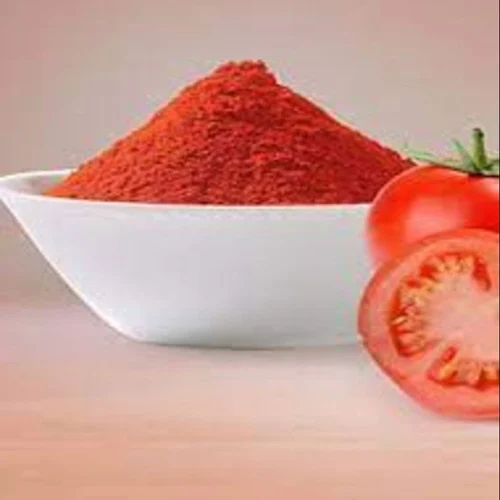Dry Tomato Powder
₹240.0
| Ingredient Type | Tomato |
| Color | Red |
| Form | Powder |
| Packaging Type | Loose |
| Usage/Application | Cooking |
Dry Tomato Powder.
You must be logged in to post a review.
Q & A
Organic food products are generally considered more sustainable than conventionally produced food products. Here are some reasons why organic food is often seen as more sustainable:
Reduced chemical inputs: Organic farming practices minimize the use of synthetic pesticides, herbicides, and fertilizers. Instead, organic farmers rely on natural methods such as crop rotation, composting, and biological pest control. This reduces the environmental impact of agriculture by avoiding the release of harmful chemicals into the soil, water, and air.
Soil health and biodiversity: Organic farming prioritizes the health of the soil. By avoiding synthetic inputs and using practices like cover cropping and composting, organic farmers promote soil fertility and microbial diversity. Healthy soil helps retain water, prevents erosion, and enhances nutrient cycling, which contributes to sustainable agriculture in the long term. Organic farms also tend to support greater biodiversity, including beneficial insects, birds, and wildlife.
Conservation of resources: Organic farming emphasizes resource conservation. It typically uses less energy-intensive machinery and reduces reliance on non-renewable resources. Organic systems also promote efficient water management techniques, such as drip irrigation and water recycling, to minimize water consumption.
Reduced greenhouse gas emissions: Organic agriculture generally contributes fewer greenhouse gas emissions compared to conventional methods. This is primarily because organic farming avoids synthetic nitrogen fertilizers, which are associated with significant emissions of nitrous oxide, a potent greenhouse gas. Additionally, organic practices, such as crop rotations and the use of organic matter, can help sequester carbon in the soil.
Animal welfare: Organic farming standards often prioritize the humane treatment of animals. Organic livestock production generally requires animals to have access to outdoor areas and mandates certain standards for animal welfare, such as providing organic feed and prohibiting the routine use of antibiotics and growth hormones.
While organic food production has many sustainable benefits, it's important to note that not all organic practices are uniformly sustainable. Factors such as transportation, packaging, and overall supply chain management can influence the sustainability of organic food products. It's advisable to consider factors beyond organic certification alone, such as buying locally produced organic food or supporting sustainable farming practices.
In summary, organic food products are generally considered more sustainable due to reduced chemical inputs, improved soil health and biodiversity, resource conservation, lower greenhouse gas emissions, and emphasis on animal welfare. However, the sustainability of organic food also depends on other factors within the overall food system.
General Inquiries
There are no inquiries yet.



Reviews
There are no reviews yet.